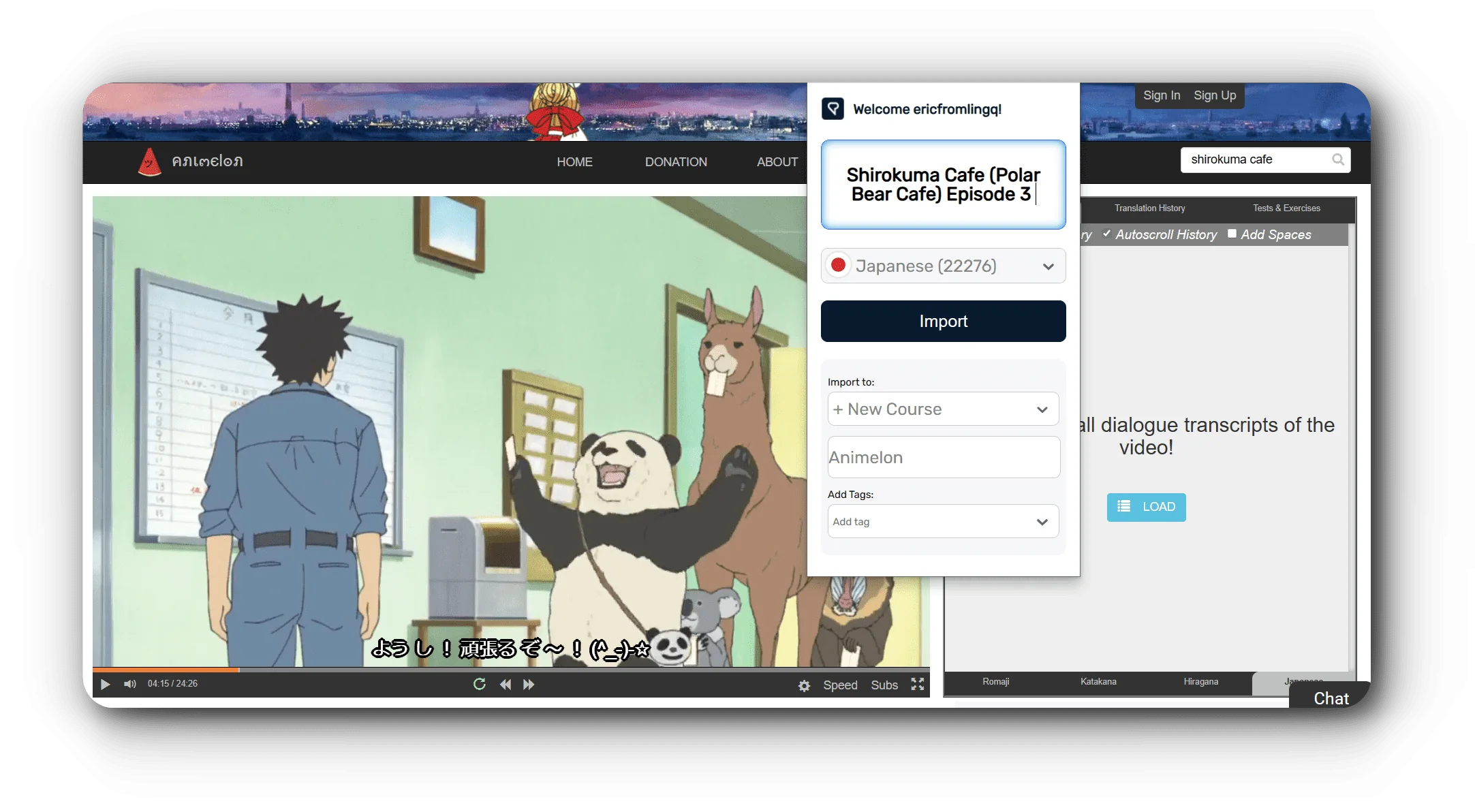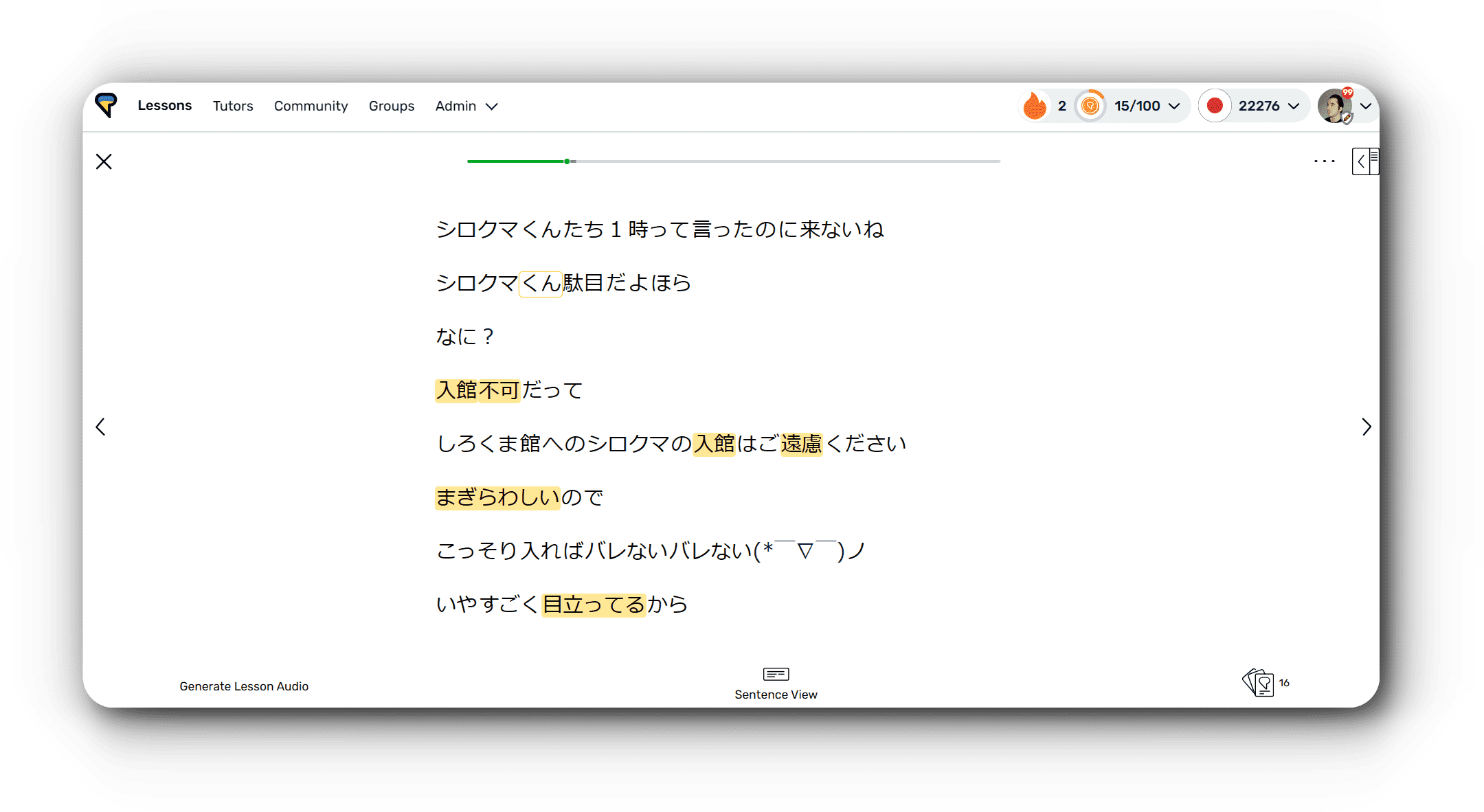Learn Japanese with Anime and LingQ
Anime is one of those cultural phenomenons that doesn’t seem to go away.
Dragon Ball, Pokémon, and Naruto are not only popular in Japan, they’ve also cemented their names at the top of the pop culture ranks here in North America.
The impact Japan has had on North America shouldn’t be understated and as a result, it shouldn’t surprise you that the Japanese language continues to grow in popularity.
I’ve been studying Japanese for a few years now and consuming anime has been a big part of my study routine. Thanks to the internet, anime is more accessible than ever before. However, finding good anime for learning Japanese can be tricky. By good, I mean content that’s free, comes with transcripts, and high quality.
In this post, I’m going to introduce you to several resources that will let you learn Japanese with anime. I’ll go over the pros and cons for each resource so you can decide which one is right for you.
Anime on YouTube
The amount of content you can find on YouTube is endless, especially when it comes to anime. You’ll have no problem finding short clips that are easy to consume. Also, there are channels like TOHO animation that upload full-length episodes in 1080p!
YouTube has a setting that allows you to toggle closed captioning on and off. This can be extremely useful, especially if those closed captions are manually written. Unfortunately, most anime-based YouTube channels only come with auto-generated closed captions. That means they’re bound to be filled with mistakes. This isn’t helpful when you want to follow along and read the dialogue (or import the content into LingQ – more on that in a bit).
Animelon
I’ve written about Animelon in the past. It’s an excellent resource for Japanese learners. The library is full of popular anime which come with Japanese subtitles.
Anisub

Like Animelon, Anisub comes with full-length anime series that you can watch and read (thanks to their Japanese subtitles). The content is high-quality and it seems that the site is regularly updated.
Anime on Netflix
Netflix comes with an excellent selection of anime which you can watch in Japanese. You can also turn on Japanese subtitles. Content is high-quality and updated regularly.
How to Learn Japanese with Anime and LingQ
Using YouTube, Netflix, or any of the other resources I’ve mentioned above, you can import your favorite anime into LingQ and create your own interactive lessons. Here’s how using the LingQ desktop app. (Please note, you can also import content into LingQ using your mobile device).
Download and install LingQ’s browser extension (Chrome, Safari, Edge, or Firefox).
Afterwards, head over to one of the websites mentioned above, open a video, click the LingQ extension, label your course, and hit the import button.
 After a few seconds, LingQ will import your anime and turn it into an interactive lesson.
After a few seconds, LingQ will import your anime and turn it into an interactive lesson.
 That’s it! Pretty easy, right?
That’s it! Pretty easy, right?
You can access your LingQ lessons using your mobile device too (Android and iOS).
I personally love the fact that I have all my favorite anime in one place. It’s a pain to keep navigating websites and going through different content. Also, by keeping things organized, I’m able to save tons of time.
Also, LingQ is optimized to give you the best reading experience possible. With one click, you can look up new words and phrases. Save your vocabulary, create flashcards, and use LingQ’s built in SRS system for review. You can listen to the anime’s audio as you read along and create playlists.
Can you learn Japanese from Anime?
This is a question that I always hear beginner learners ask. The short answer, yes. Many Japanese language learners have done it and so can you. Anime can teach you how to sound like a native speaker, introduce you to vocabulary that your Japanese friends may not even know, and also give you a better understanding of Japanese culture.
As Steve Kaufmann has said countless times, you need to enjoy the language learning process – and the best way to do that is to learn from content you love.
Thanks to the Internet, you’re a click away from finding anime (and any other kind of content for that matter) that caters towards your interests. Using LingQ, take your studying a step further and turn content you love into your own personal language lessons so you can become fluent faster.
Enjoyed this post? Check out polyglot and LingQ cofounder Steve Kaufmann’s blog post to learn about the similarities and differences between learning Korean vs Japanese!

